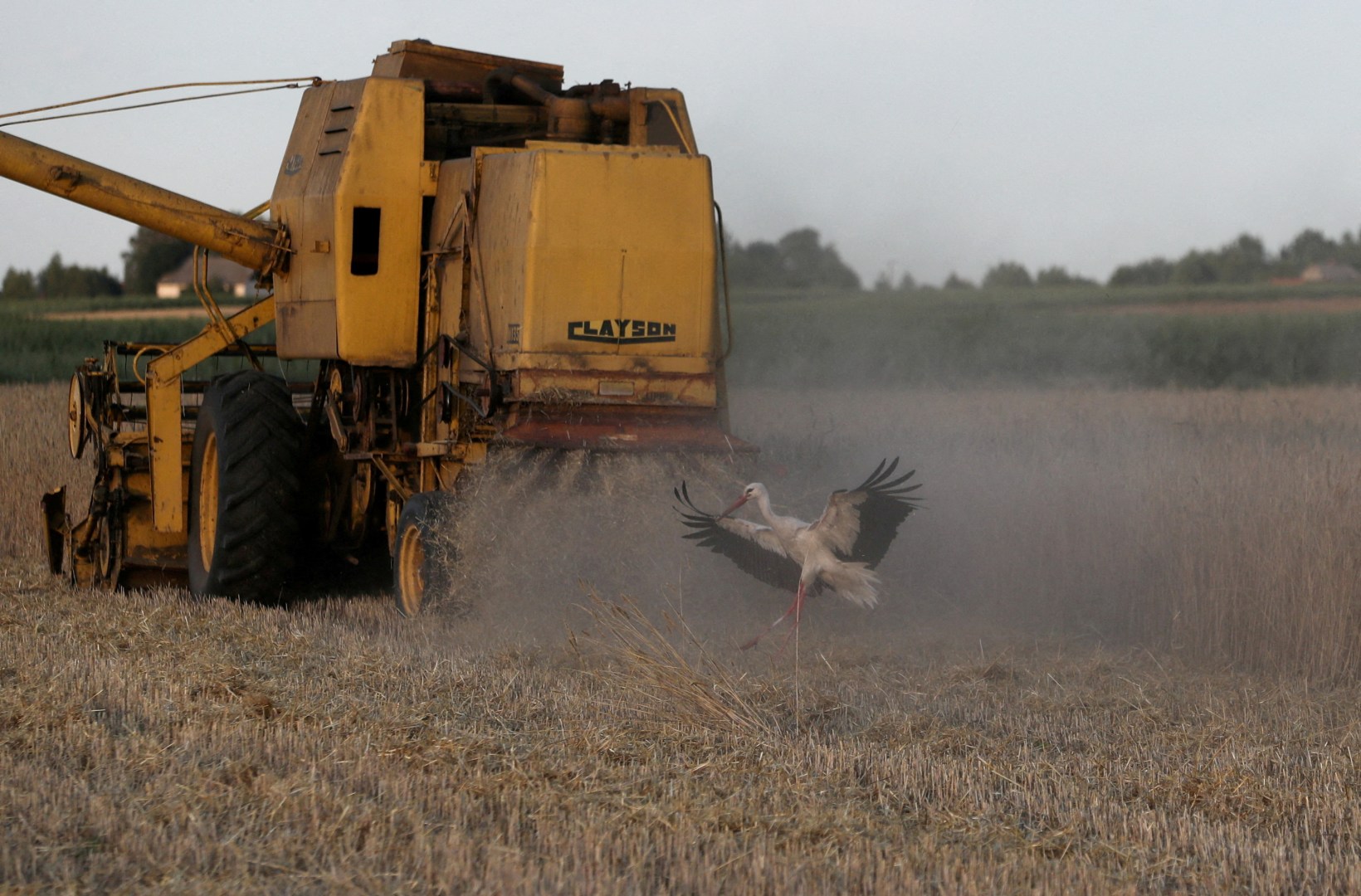
Commentary
-
Our commentary partners will help you reach your own conclusions on complex topics.
Hey everybody, Peter Zeihan here coming to you from Colorado. It is the ninth of May. And all talk is about the imminent attack, counter attack of the Ukrainians against Russian forces across the length and breadth of Ukraine. There are a lot of reasons to expect a lot of action. And we’re going to have to break this up into chunks. Today, we’re gonna do talk about the stuff that we know is inevitable. We’ve seen significant improvements in Ukrainian air defense to the point that over 90% of the missiles and drones that the Russians have been falling with firing in have not been able to hit their targets, which is, you know, great if you are in Ukraine, because they’ve been targeting the power grid. However, once it becomes apparent that the Ukrainians are going to move, and once it becomes apparent that the weather is warm enough that targeting the power sector isn’t going to kill any civilians in Ukraine, the Russians are going to switch their targets to facilities that are more difficult to defend, and that is the agricultural supply chain system. So on the 18th, there is a deal that lapses, the Turks in the United Nations have brokered a deal between Ukraine and Russia that allows civilian bulk trade shipping vessels to get into Ukrainian ports, after being searched by the Russians load up with Ukrainian, corn, wheat, sunflower and other stuff. And they get reinspected on their way out just to make sure that they’re not smuggling anything in such as say, weapons. The Russians have been warning for weeks, if not months, that they’re backing away from the deal. And they’re definitely not going to be renewing it next week, when it becomes up for renewal, because they need to switch target sets. In the past, they’ve gone for the power grid, because that’s how you kill people in Ukraine in the winter. But once you get to summer, you have to starve them. And this is probably going to be the end of meaningful agricultural exports from Ukraine. They’re gonna go for ships, they’re gonna go for ports, they’re gonna go for loading facilities, they’re gonna go for cold chain systems, they’re gonna go for silos, and storage facilities. And of course, any place that builds or maintains agricultural equipment, this stuff is a lot more dispersed, it’s a lot harder to defend. It’s not like just putting a bunch of air defense around the city. And you’re gonna have a lot more target hits because of it. But that’s how this is going to go. On the Ukrainian side. This doesn’t mean that you should expect an assault before the 18th. In fact, I really don’t think it’s going to happen this month. And the problem is simply weather and not like abnormal weather, just how it normally is. The problem the Ukrainians face is that every fall in every spring, the country just gets deluged and the land is very flat and doesn’t drain very well. So you get mud, not mud that’s like three or four inches deep, but mud that can be six to eight feet deep. And until it dries out, you simply cannot move people, much less tanks, unless they’re on a road. And if you have heavy equipment on the road, you’re just asking for it to get blown up. So while the Ukrainians appear to be nearly ready, they brought in a lot of weaponry, all the battle tanks that NATO has promised are there. And they’ve even trained up on a few jets that have been donated. They can’t move yet. And so it’s probably going to be the last week of May or into June when things finally dry out. That’s just kind of traditionally when the spring mud season ends. So it’s coming. It’s close, but we’re not here yet. Now in tomorrow’s session, we’re going to talk about what the goals are of the Ukrainian offensive, but I’m going to warn you right now the Ukrainians have done well because they have been unpredictable. And after that, we’ll start talking about minimum cases for victory for both sides. Alright, that’s it for me. Talk to you guys tomorrow. Bye. Bye.
-
Why Putin axed Shoigu
On Monday, May 13, Russian President Vladimir Putin replaced Defense Minister Sergei Shoigu with Andrei Belousov. It was a surprising move to some observers, as Putin had previously refused to oust Shoigu from that position even after the Wagner Group rebelled against Shoigu specifically. Others, like Straight Arrow News contributor Peter Zeihan, predicted this move…
-
New roles for Russia, North Korea, Iran in global arms trade
As Russia’s war in Ukraine continues and its weapons supply dwindles, it appears the country is seeking alternative ways of replenishing its arms stockpiles. Iran has reported a 40% increase in arms sales to foreign states, with Russia being a significant recipient. Russia has also been attempting to buy artillery from North Korea. Straight Arrow…
-
Why interest rates will be higher for longer
At the start of 2024, the outlook for the U.S. economy was optimistic. Inflation was falling, unemployment was shrinking and the country was experiencing strong GDP growth. As 2024 progressed, that situation changed. Inflation proved stubborn, remaining above 3%, and economic output slowed down, making the Federal Reserve’s initial prediction for six rate cuts no…
-
How to handle plunging US birth rate before it’s too late
The latest CDC report on the U.S. birth rate reveals a decline in fertility rates, with 2023 seeing just 1.62 births per woman, marking the lowest level since data collection began in the 1930s. Births in the U.S. decreased for over a decade prior to the onset of COVID-19, and then experienced a 4% drop…
-
Japan must confront reality of military threats
The United States and Japan have been friendly since the aftermath of World War II, after which the U.S. committed around $38 billion (in 2024 dollars) to help rebuild its former enemy. Today, especially in light of the growing military threat from neighboring China, Japan is increasingly aligned with Western security alliances like AUKUS and…
Latest Stories
-
 Getty Images
Getty Images
Boeing faces potential prosecution over 737 Max crashes
-
 Getty Images
Getty Images
TikTok users sue federal government over law that could ban app
-
 Getty Images
Getty Images
Biden administration plans $1 billion weapons deal with Israel
-

Hogan win could make anti-Trump candidate GOP's Senate savior
-
 Bounce Imaging
Bounce Imaging
Throwable cameras give users a 360 degree view: Weapon of the week
Popular Opinions
-
In addition to the facts, we believe it’s vital to hear perspectives from all sides of the political spectrum.
Latest Opinions
In addition to the facts, we believe it’s vital to hear perspectives from all sides of the political spectrum. We hope these different voices will help you reach your own conclusions.
The opinions published in this section are solely those of the contributors and do not reflect the views of Straight Arrow News.

















Latest Commentary
We know it is important to hear from a diverse range of observers on the complex topics we face and believe our commentary partners will help you reach your own conclusions.
The commentaries published in this section are solely those of the contributors and do not reflect the views of Straight Arrow News.
Peter Zeihan
Geopolitical StrategistNew roles for Russia, North Korea, Iran in global arms trade
Why interest rates will be higher for longer
How to handle plunging US birth rate before it’s too late
Dr. Frank Luntz
Pollster and Political AnalystGen Z debates capitalism vs. socialism, meritocracy vs. equality
‘We want to find common ground’: Gen Z’s stubborn optimism
‘Take the job seriously’: Why Americans are fed up with Congress
Pete Ricketts
U.S. Senator for Nebraska